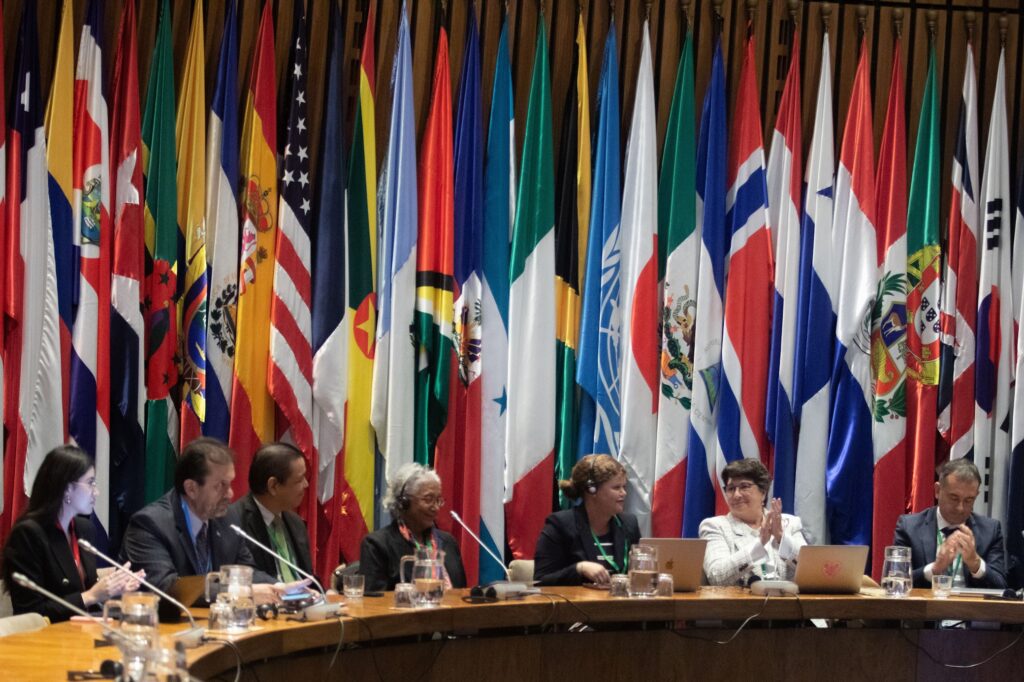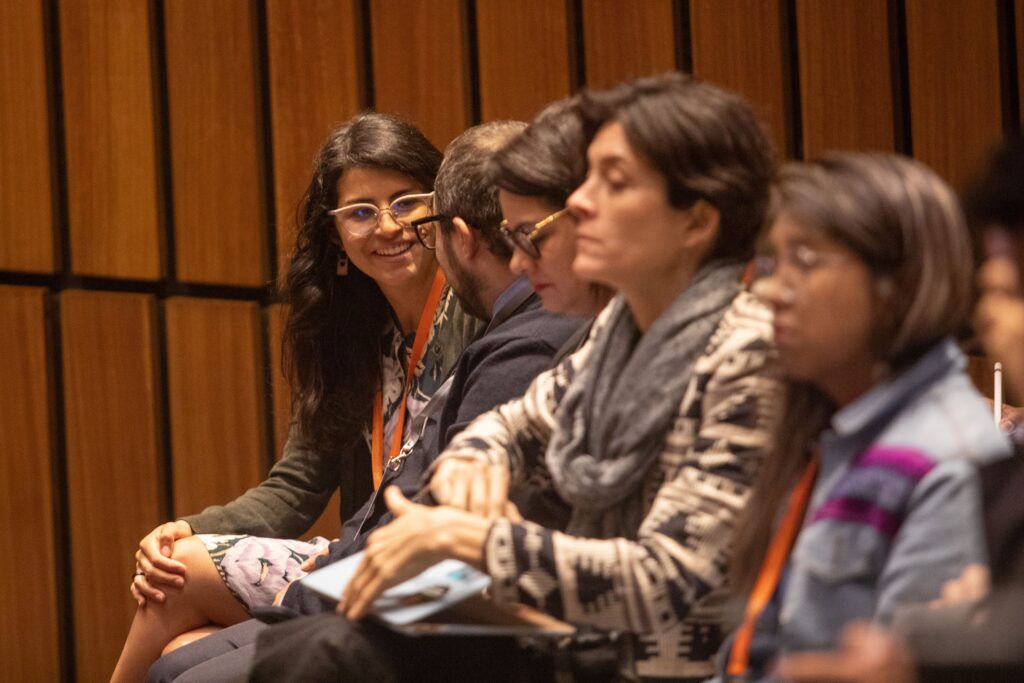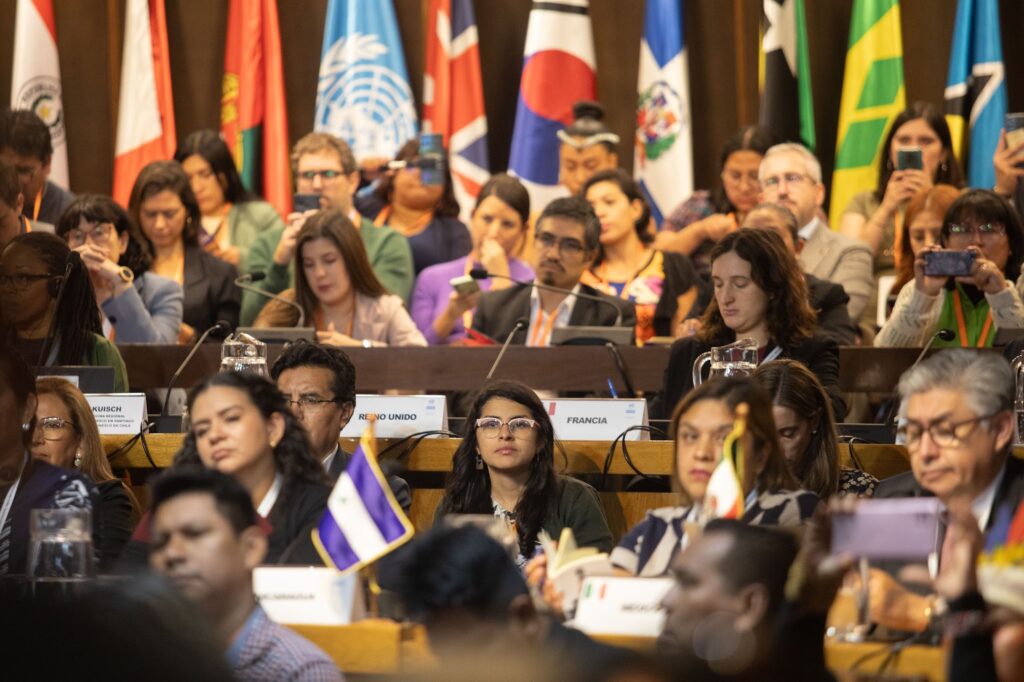SANTIAGO, Chile — Government representatives, civil society, and Indigenous leaders convened in Santiago, Chile, from April 22 to 24 for the third conference of the parties to the regional Escazú Agreement. The Escazú Agreement, which focuses on access to information, public participation, and justice in environmental matters, welcomed Grenada as its newest member, bringing the total to 16 parties and 24 signatories. This expansion marks a significant stride toward bolstering environmental protection across the region.

During the conference, several parties presented their national implementation plans. Last year, The parties selected members for the committee tasked with supporting implementation and compliance with the agreement. During this COP the committee adopted its internal rules of procedure. Notably among them, the committee established a rapid response mechanism to safeguard environmental human rights defenders facing threats or intimidation.
A central focus of the conference was the adoption of an action plan to support the implementation of Article 9 of the Escazú Agreement, which emphasizes the recognition and protection of environmental defenders. The adoption of this plan underscores the urgent need to address the alarming threats faced by environmental defenders in Latin America, where 88 percent of such killings occurred in 2022.
Natalia Gomez Peña, Climate Change Policy Advisor at EarthRights International, emphasized the transformative nature of the Escazú Agreement, stating, “The Escazú Agreement broke the paradigm about the way international treaties are negotiated, giving a direct voice to the people at the negotiation table.”

Gomez Peña highlighted the importance of the action plan in equipping parties to fulfill their obligations and ensure the agreement delivers tangible benefits to communities across Latin America and the Caribbean.
However, concerns remain regarding the clarity of responsibilities and implementation mechanisms within the action plan. Indigenous representatives had hoped for a specific mechanism to address violence against Indigenous peoples, but the plan’s language remains broad, emphasizing meaningful public participation.
Moreover, several governments representing countries with the highest recorded levels of violence against environmental human rights defenders, such as Brazil, Colombia, Guatemala, and Peru, have signed but not yet ratified the treaty. In 2025, Brazil will host the world’s climate change negotiations during COP30, at which time there is expected to be significant attention on the important role of Indigenous peoples and other environmental defenders in conserving the Amazon rainforest.
As governments and civil society rally behind the Escazú Agreement, they underscore its crucial role in uniting Latin America to protect those defending the environment. The adoption of the action plan signifies a critical step forward in realizing the agreement’s goals and safeguarding environmental defenders across the region.

Media Contact:
Lauren Barnes-Carrejo
lauren.barnes@earthrights.org
903-539-0809






